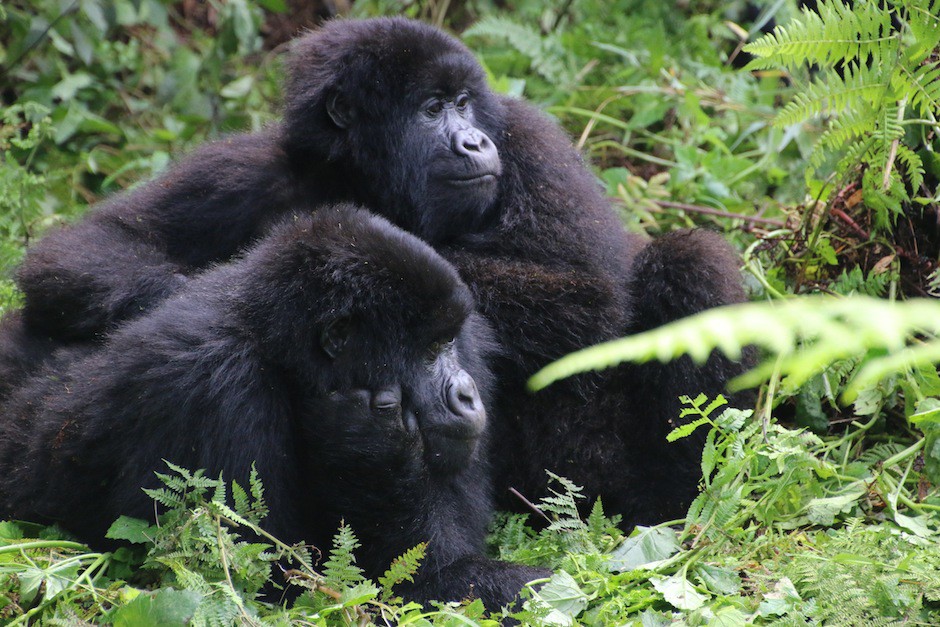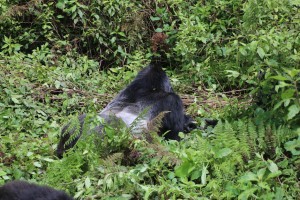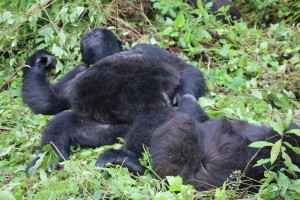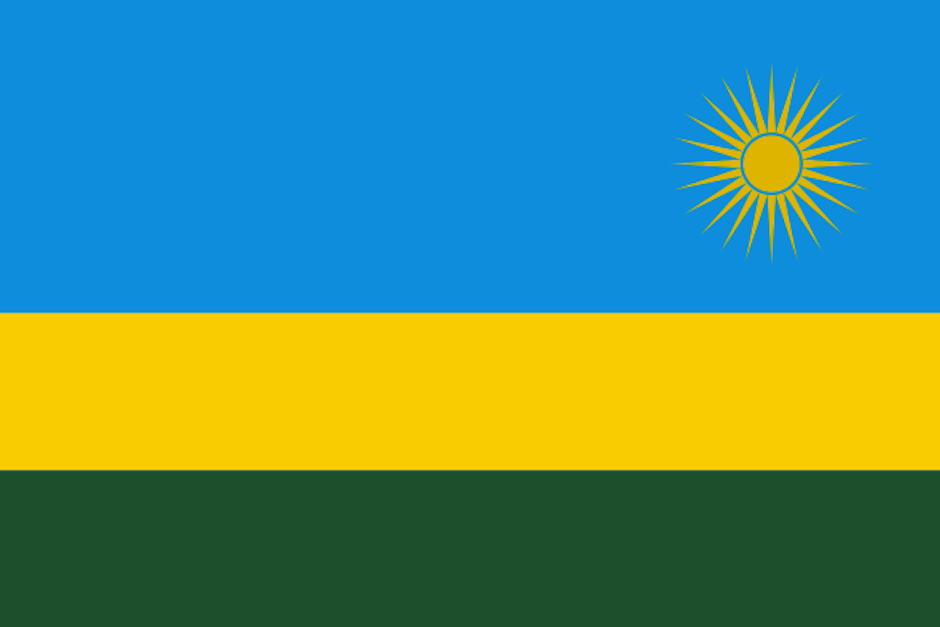The odor is thick. The kind that sticks in your nostrils. Strong musk. Just shy of skunk. I look at our park guide. I can smell them, I say as we move deeper through the bamboo and dense undergrowth. Bosco leads our small group of six. Roger, a second park guide, accompanies us as well as a tracker carrying a machete. The bamboo cracks beneath our feet. We duck under low hanging vines and there, lying flat on their backs, in a small open area not more than 10-12 feet from us are what we have come to see. The Mountain Gorillas — the species brought to the world stage by Dian Fossey almost 50 years ago. The silverback is behind the bush, Bosco says aloud – not in a whisper. A foretelling of the tone of the visit which is about to unfold. I sidestep to the left and the great Agashya comes into view. His long silver back outstretched; his front facing away from me. He is sedate. Chill. Almost as chill as the females sound asleep surrounding him.
Bosco motions for us to follow him further left and deeper into the foliage. Come, black backs are playing here. Black backs are male adults whose backs have not yet grown their silver hair and who are beta to Agashya’s alpha and not permitted to mate. Only Agashya will father the babies of this group.
The word Agashya in the mother tongue of Rwanda, Kinyarwanda, means “special.” Our education about the Mountain Gorillas and this special group started very early that morning.
***
“Good morning!” Lawrence our host at the Bambou Lodge belted out along with a powerful wake-up knock on our rondele door. It’s finally 5:30. I had been awake for who knows how long. I felt nervous about the hike – high altitude and no way to know how far until the trackers found the gorillas. I was also somewhat fearful of being run over by a gorilla. I had felt the power of a baby panda bear when I held one in China. A gorilla’s unleashed, animal strength must be greater.




